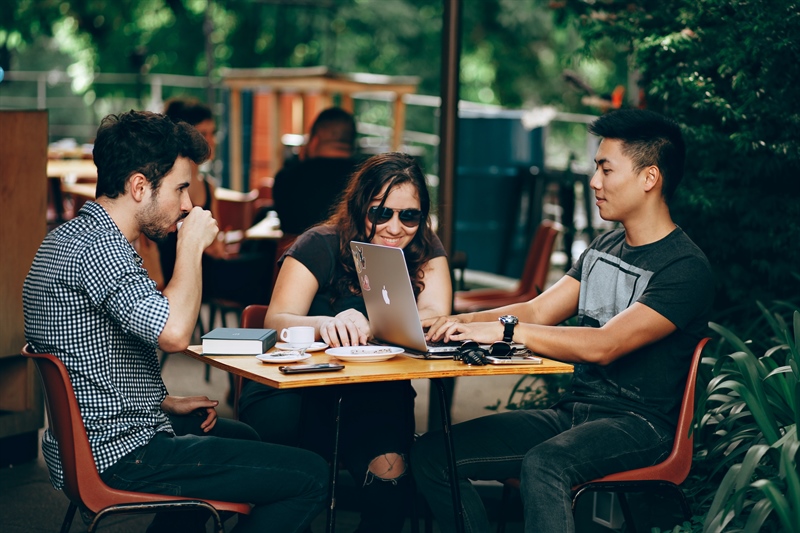Collegiate Recovery Programs: From Conception to Present-Day Communities
Navigating recovery in college is no easy task. Find out how to get involved in your CRP!

College is highlighted in society as a time of fun, partying and experimenting with substances. For those entering higher education while in recovery from alcohol or substance use, this fact can be challenging. When surrounding peers seem to be doing activities that are all in direct opposition to recovery maintenance, it is hard to find a place to belong and can become detrimental to one’s sobriety and overall college experience. Collegiate Recovery Programs (CRPs) were established to combat these experiences and create a recovery-friendly campus environment.
These communities are sanctioned by higher education institutions to provide addiction and recovery support services to students on campus. CRP interventions and support services are vital for those in recovery. Students who have access to recovery support throughout higher education have an 80% chance of maintaining their recovery, compared to the 20% chance they have for maintaining recovery without access to these services. The movement for establishing these communities began rapidly expanding in the early 2000s, but started many years before.
A Brief History
Dr. Bruce Donovan was a classics professor at Brown University and in personal recovery from alcohol use. After a few years on his recovery journey, he began helping students on Brown’s campus find support services and guiding them through recovery-related problems. In 1977, the university backed the support he was providing to their students by granting him the title “Dean of Chemical Dependency.”
Throughout the next 10 years, other northeastern universities started to adopt the ideas of recovery-oriented communities on campus, with Rutgers University forming the first recovery-only dormitory housing. In the late 1980s, the movement began to expand to other areas of the country and evolve, with Texas Tech’s Center for Collegiate Recovery Communities (CRCC) being the first CRP founded outside of the northeast. Brown, Rutgers and Texas Tech came together in the late ’90s to form what is now known as the Association of Recovery in Higher Education (ARHE).
Now, 45 years after Donovan’s collegiate recovery support role was established, the recovery movement in higher education is bigger than it has ever been, with 156 established CRPs. Many of these organizations begin as small, student-led organizations that grow and increase services over time. Other recovery communities on campus have been created through the support of state government legislation and funding. For example, the New Jersey Senate passed a law in 2015 requiring all public universities to offer recovery-oriented student housing if 25% or more of the student body lived on campus. In 2017, Maryland required CRPs to be established for students in the University of Maryland system.
CRPs’ Impact on Campus, and How To Get Involved
These communities are dynamic and often offer a variety of services, which can include mutual aid meetings, substance-free housing, substance-free social events, recovery housing, professional counseling services and brick-and-mortar safe spaces on campus with full-time staff dedicated to students in recovery. A study published in the Journal of Substance Abuse Treatment examined the benefits of these programs and found that students had higher GPAs than the university average, higher graduation rates than the university average, and relapse rates under 10% for all students in recovery programs. The more involved a student is in their CRP, and the more they engage in the services and activities provided, the more likely they are to maintain recovery.
If you are in recovery and in college, joining a CRP can give you everything the “typical” college experience does without being destructive to your sobriety. There are many ways to get more information about the CRP on your campus and to become involved. Students who are at colleges or universities with CRPs often learn about these communities at orientation or in their brick-and-mortar centers on campus. Students can also find information using the institution’s website to find the recovery community’s page, or they can ask student resources and student activities coordinators for more details.
While there are more than 150 CRPs throughout the United States, many campuses still need to set up these communities. If your campus does not have a recovery community yet, do not be discouraged. Many of these communities are formed by students in recovery and resources/assistance are available to aid in this process free of cost. Both ARHE and Texas Tech’s CRCC have resources, guides and information about developing a program on your campus which include the stages of building support, raising awareness and fundraising.
Remember not to get discouraged during the process! Just like when Dr. Donovan began this movement at Brown, one student at a time is all it takes to create transformative, life-changing spaces on campus.
More Help & Information
Does the 'Pink Cloud' of New Sobriety Help or Hurt? It's Complicated
The euphoria of early recovery may be fleeting, but long-lasting balance is the goal. Here's how to keep your head up through the process and handle reality with confidence.
Sobriety vs. Recovery: What's the Difference?
Are the concepts themselves up for debate? Do they require certain treatments, or abstinence from everything? It's complicated! And new ways of thinking are changing the conversation.
Now Elite NFL Players, They First Tackled Addiction | News Roundup
All Sober compiles the best of the latest headlines. Here's your addiction and recovery news for the week of Feb. 19, 2024!
Help Them Help You: Explaining Your Mental Health to Your Family
Your mental health can affect — and be affected by — your loved ones. Here's how to discuss it with them so everyone can heal.
Dry January (and Beyond): The Possibilities Are Endless
There's never been a better time to go sober. Whether you're trying it out this month or already living the life, join us for some tips, ideas, inspiration — and maybe even new friends.
Sober Holiday Tips: Meeting 'Share-a-Thons'
Need to get out of the house for a bit and see some friendly sober faces? Recovery support group meeting marathons run 24/7 from Christmas Eve through New Year's Day.
What Happens After an Intervention?
Your loved one agreed to get treatment for addiction during their intervention — or not. Here's what you need to know about what comes next.
We're in This Together: Building a Healthy Sober Support Network
You are the captain of your recovery, but you don't have to do it alone. A sober support network will lift you up in tough times and celebrate your triumphs.











